
About our university



Main Research and Educational Facilities
Center for Community Medicine

The Center for Community Medicine was established in April 2004 to further advance education, research, and medical care necessary for the enhancement of community medicine. This Center comprises seven divisions (Community Medicine, Public Health, General Medicine, Community Medicine Policy, Community Medicine Support, Oriental Medicine, and Human Resources Development for Community Medicine), aiming to function as an actual center of community medicine in Japan for systematizing and publicizing community medicine.
Center for Molecular Medicine
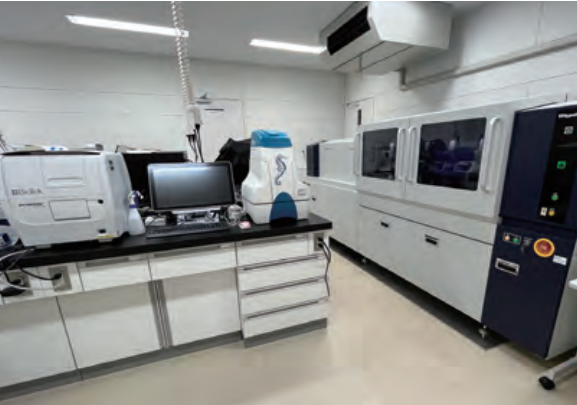
The Center for Molecular Medicine (CMM) was established in 1998 as an institution to conduct research and development in the field of medical science. Since its establishment, CMM has been engaged in “Molecular Pathogenesis of Refractory Diseases and Development of Gene Therapy Technologies” as a High-Tech Research Center Project under the Ministry of Education, Culture, Sports, Science and Technology. In 2003, CMM was selected for “Basic Research and Development for Genome Medicine and Regenerative Medicine” and has made many achievements in cutting-edge medical research suitable for the 21st century. In 2008, “Bioimaging Research from Molecular Pathogenesis to Novel Therapeutics” led by CMM was selected for the strategic research base formation support project, and in 2013, for “Pathogenesis of Non-communicable Diseases and Formation Bases for Development of Diagnostic and Therapeutic Techniques”. In this way, CMM has promoted multidisciplinary research that links the pathogenesis of diseases to the development of therapies. CMM was also selected for the “Private University Research Branding Project” in 2016, and established a joint research structure for anti-aging medicine in CMM. At present, CMM has eight research departments (Molecular Pathogenesis, Emerging Medicine for Integrated Therapeutics,, Genetic Therapeutics, Anti-Aging Medicine, Regenerative Medicine, Inflammation Research, Cardiology and Metabolism, and Cardiovascular and Genetic Research), which vigorously promote mutual cooperation and joint research with the departments of the School of Medicine.
Center for Information

The Center for Information was established in April 2003, aiming to plan and promote the practical use of information technology, in order to invigorate and upgrade education, research, medical services and community medicine. The computer exercise division and the educational server division were set up in the Center in September 2003, and have been utilized as the hub of computerized education. The Center aims to upgrade its network infrastructure, to promote information technology throughout the campus, and to facilitate communication with JMU alumni all across Japan. The Institutional Research (IR) Section was established in 2016 and is promoting the accumulation and analysis of various data on campus, mainly in education.
Library

TThe library, located on the second and third floors of the Community Medicine Information and Training Center, effectively collects and provides materials and information necessary for education, research, and medical services, as well as for lifetime education and community medicine for JMU alumni. The library is also open to local communities and medical professionals. Therefore, in addition to the standard facilities necessary for a medical library, the Library has a media studio and other facilities that provide comprehensive materials and information.
RI (Radio-Isotope) Center
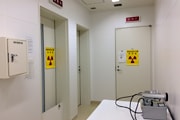
The RI Center was established in 1974 as a joint-use facility for experiments using radiation. In 1987, a new RI facility was also established in the Center for Experimental Medicine, where medical and life science research activities are conducted using unsealed radioisotopes (15 nuclides). The facilities are also available for research activities in which small animals and cells are irradiated with radiation using irradiation equipment, as well as for recombinant DNA experiments. Safe handling of RI is extremely important to maintain the safety of facilities and the environment, and to prevent radiation hazards to radiation workers. The RI Management Office supervises safe handling. implements education, and manages radiation exposure in accordance with laws and regulations.
Center for Experimental Medicine
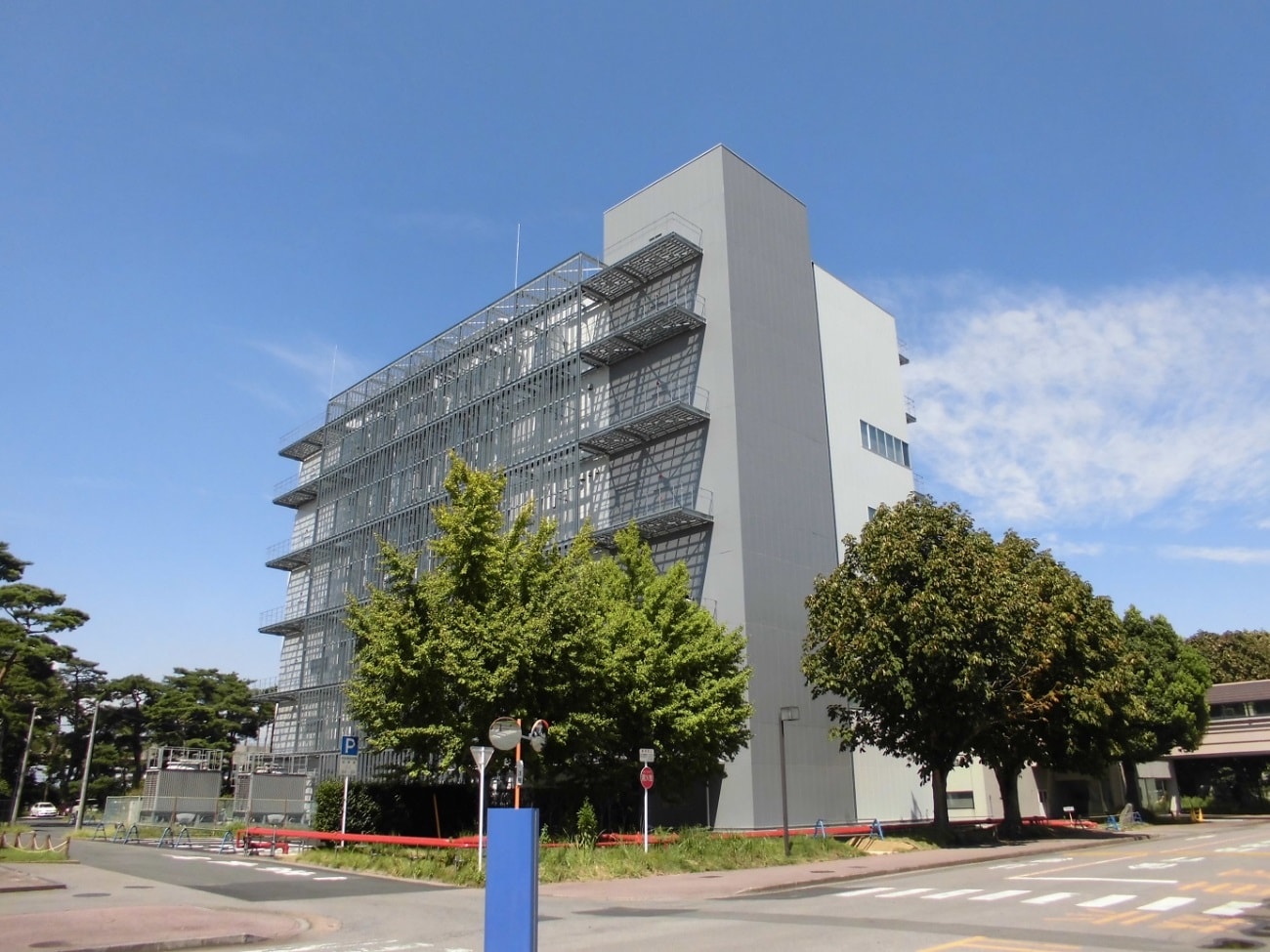
The Center for Experimental Medicine was established in 1987 as a centralized management facility for laboratory animals suitable for frontier medical research. The Center moved to a new building, completed in 2018, and introduced individually ventilated cages (IVCs) to strictly maintain a specific pathogen-free (SPF) environment for laboratory animals and improve usability for researchers while enhancing animal welfare. In addition to the development of genetically modified or genome-edited animals, which have become essential to recent medical education and research, the Center has been involved in the preservation of biological resources such as embryos and gametes, serving as a hub for scientific and ethical animal experimentation.
Medical Simulation Center
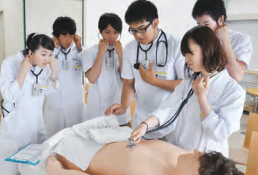
The Medical Simulation Center (Jsim47) was opened in April 2008 to help students acquire necessary skills and abilities prior to participatory clinical training. Jsim47 supports clinical education for students, the acquisition of skills by healthcare professionals at the hospital, and community medicine. Jsim47 is equipped with training simulators for emergency resuscitation and for diagnosis and examination, as well as an easy-to-use environment. Jsim47 is also engaged in the development of more effective and efficient training methods and simulators.
Center for Development of Advanced Medical Technology
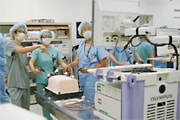
The Center for Development of Advanced Medical Technology, also referred to as “Pig Center,” was established in 2009 to support medical research and surgical training using swine. The Center is one of the leading large animal experiment facilities in Japan, equipped with swine-only breeding facilities, surgical division, MRI, CT, intensive care units (ICUs), aseptic units, and cell-processing division, capable of long-term swine management. The Center introduced genome-editing technology ahead of similar facilities and has proactively produced genetically modified swine. The Center has been certified by the Ministry of Education, Culture, Sports, Science and Technology (MEXT) as a National Joint Usage/ Research Center since 2017. The Center received the highest S rating both in the interim and end-of-term evaluations, and the certification as a national center was renewed for another six years from 2023. The Center will continue to widely open its facilities to the general public, thereby promoting the development of new interdisciplinary fields and human resources.
Regional Clinical Education Center (RCEC)
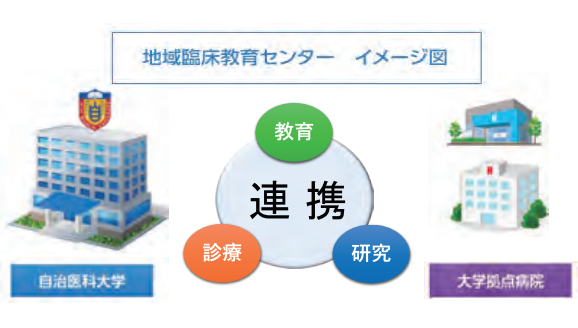
The Regional Clinical Education Center (RCEC) is an education and research institute established in August 2015. In cooperation with affiliated hospitals, RCEC promotes and coordinates regional medicine, an educational system for medical students and residents to learn common diseases, and medical research.
Data Science Center
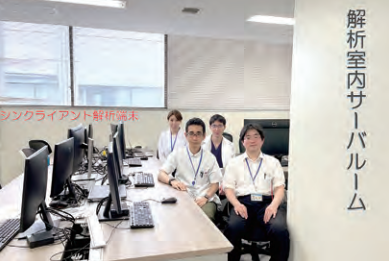
The Data Science Center of Jichi Medical University (JMU) was established in April 2017, aiming to manage large-scale medical care and biomedical data, and to conduct research activities using such data. The Center not only internally manages and analyzes large-scale data, but also implements training on analysis know-how and provides support for researchers unfamiliar with the analysis of large-scale data. Specific research topics include medical care analysis using health insurance claims data, ECG waveform data analysis using AI systems, and analysis of medical documents using natural language processing Al.
Center for Physician and Researcher Career Support

The Center provides physicians and researchers with support in career development and employment. The child nursing room “Airisu” in the child care division provides care for sick children, temporary childcare, and night childcare, thereby supporting work balanced with childcare. The services have been available to all staff at Jichi Medical University and JMU Hospital since 2012. Care for sick children have also been available to residents and workers in Shimotsuke who are not JMU staff. The Center holds work-life balance seminars and periodic exchange meetings for next-generation physicians and researchers to facilitate exchange among young physicians and researchers and graduate school students, and to promote their career development and research activities, as well as holds Jichi Joy Café, periodic meetings for sharing views and opinions concerning work styles. The Center also provides consultation services by advisors concerning issues in career continuation. In 2020, the Center was registered with the National Diversity Network, which aims to foster gender equality at universities, research institutes, companies, etc. and to develop researchers. In response to the implementation of work-style reforms and the diversification of needs, we at the Center pursue a more fulfilling support system and activities regardless of gender or childcare.
Jichi Training Center for Nurses Pertaining to Specified Medical Acts
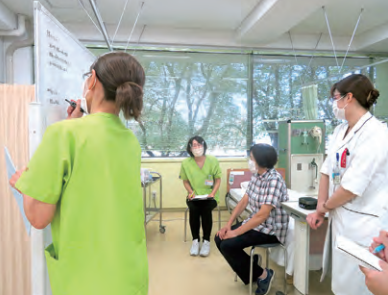
The Jichi Training Center for Nurses Pertaining to Specified Medical Acts was established in August 2015, based on designation as a research institution under the nurse training system pertaining to specified medical acts established by the Ministry of Health, Labour and Welfare, which took effect on October 1, 2015.
In Japan, a social structure is anticipated where each senior would be supported by about two younger Japanese persons by 2025, when the baby boomer generation becomes 75 years of age or older. In preparation for this scenario, the Center implements training for developing nurses capable of playing their roles as key persons in team medicine, having advanced and specialized knowledge and skills necessary for undertaking specified medical acts based on prior instructions (written procedures) from physicians.
Open Innovation Center
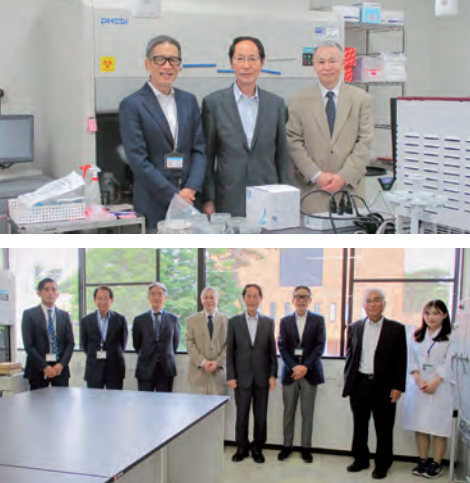
The Open Innovation Center was established in 2018 for the purpose of creating novel innovations from JMU. The Center is intended to identify multiple promising research seeds in JMU, to set up large-scale joint research projects engaging companies and other external organizations, to acquire necessary external funds, and to manage them in a centralized manner. The Center also provides support in patent application and implementation and in marketing, thereby linking research achievements to social implementation. The Center provides open labs at relatively low prices for use by JMU-based startups.
CGTR (Center for Gene Therapy Research)
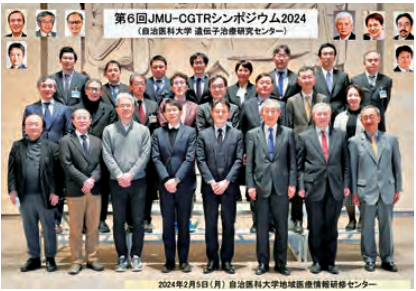
The Center for Gene Therapy Research (CGTR) was established in October 2018 by interdisciplinary bringing together gene therapy researchers who belonged to different divisions of JMU, ranging from basic medicine to clinical practice. The Center undertakes the development and research of gene therapy including genome editing technology at JMU, which encompass refractory diseases such as genetic diseases and oncology, and pursues expedited translational research from basic medicine to clinical applications, thereby aiming to lead gene therapy research in Japan. The Center was selected as a central base in the expediting program for regenerative medicine, cell therapy, and gene therapy of the Japan Agency for Medical Research and Development (AMED) in 2023, thereby functioning as a research and clinical base for gene therapy in Japan.
